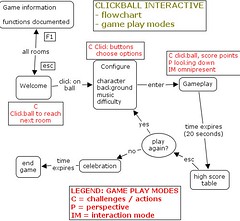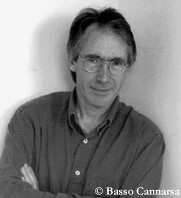Earlier this year The Edge group published the responses of 120 thoughtful people (biologists, physicists, psychologists, futurists, philosophers etc.) to this question:
"WHAT DO YOU BELIEVE IS TRUE EVEN THOUGH YOU CANNOT PROVE IT?"
Some of the names were already known to me (Richard Dawkins, Daniel Dennett, Esther Dyson, Stephen Pinker, Daniel Hillis, some others) but many were not.
I spent a few hours just extracting some of the beliefs expressed by the contributors. I’m reproducing some of the beliefs below but note that there is often an interesting argument, sometimes several paragraphs, sometimes just one paragraph written in support of the belief. I haven’t read them all, there are 10 printable web pages and I’ve only managed to complete two so far. Many of the responses are quite thought provoking IMO and it wouldn’t work to rush through them. I’ve marked the essays that I think are worth reading in full with a ** after the authors name and provided direct links.
Many of the contributors express opinions that are either atheistic, optimistic, dynamist (everything is in flux) or just plain interesting. There are some pessimists in there too (global warming is there of course) but I’ve left them out! Taken overall the contributions give me the feeling that modern science, technology and psychology is a dynamic and exciting enterprise. More often than not the contributors are speculating about the future but sometimes they delve into the past.
True love.
David Buss **
Life is ubiquitous throughout the universe.
Craig Venter **
… life is common throughout the universe and that we will find another Earth-like planet within a decade
Stephen Petranek… the radiation emitted by mobile phones is harmless
Tom Standage..that reality exists and science is the best method for understanding it, there is no God, the universe is determined but we are free, morality evolved as an adaptive trait of humans and human communities, and that ultimately all of existence is explicable through science.
Michael Shermer **
… that quantum mechanics is not a final theory
… the fundamental properties of physical entities are a set of relationships, which evolve dynamically. There are no intrinsic, non-relational properties, and there is no fixed background, such as Newtonian space and time, which exists just to give things properties.
Lee Smolin ** (some contributors expressed more than one belief)
… no part of my consciousness will survive my death
Ian McEwan(it will become possible to) … cause cells from one tissue to form another different tissue
Ian Wilmut **
… reality and information are the two sides of the same coin.
… some day all computers will be quantum computers
Anton Zeilinger ** (two beliefs)
Advances in computational linguistics and user interface design will eventually enable people to find answers to any question they have, so long as the answer is encoded in textual form and stored in a publicly accessible location. Advances in reasoning systems will to a limited degree be able to draw inferences in order to find answers that are not explicitly present in the existing documents
Marti Hearst **
… both cannibalism and slavery were prevalent in human prehistory
Timothy Taylor… people gain a selective advantage from believing in things they can't prove
Randolph Neese **
… the substrate of really old memories is located not inside cells, but outside cells, in the extracellular space
Terrence Sejnowski **







